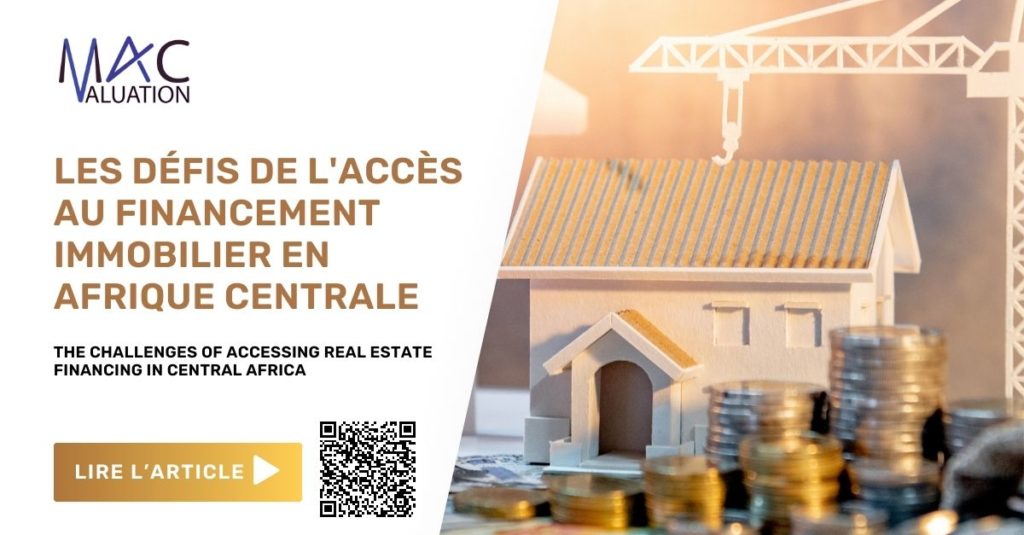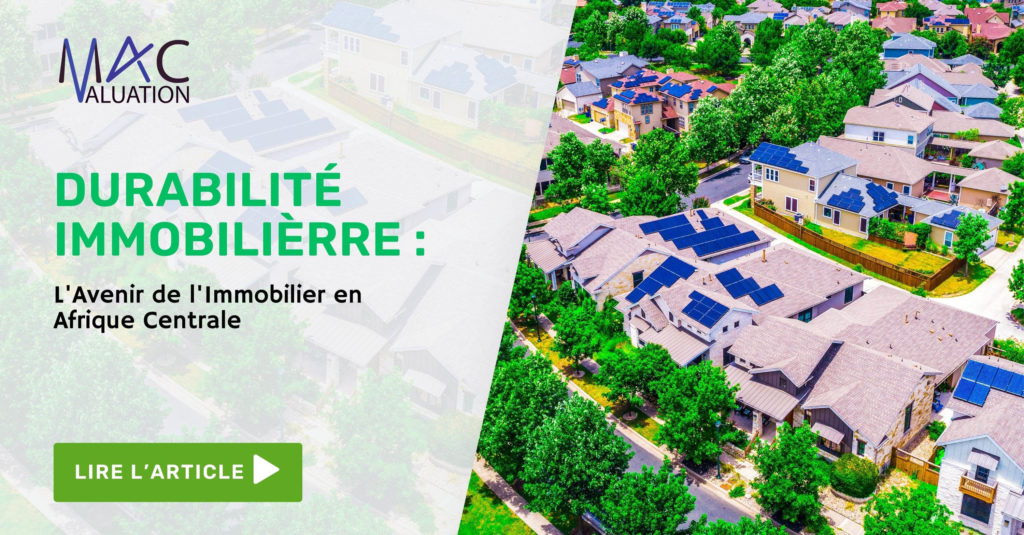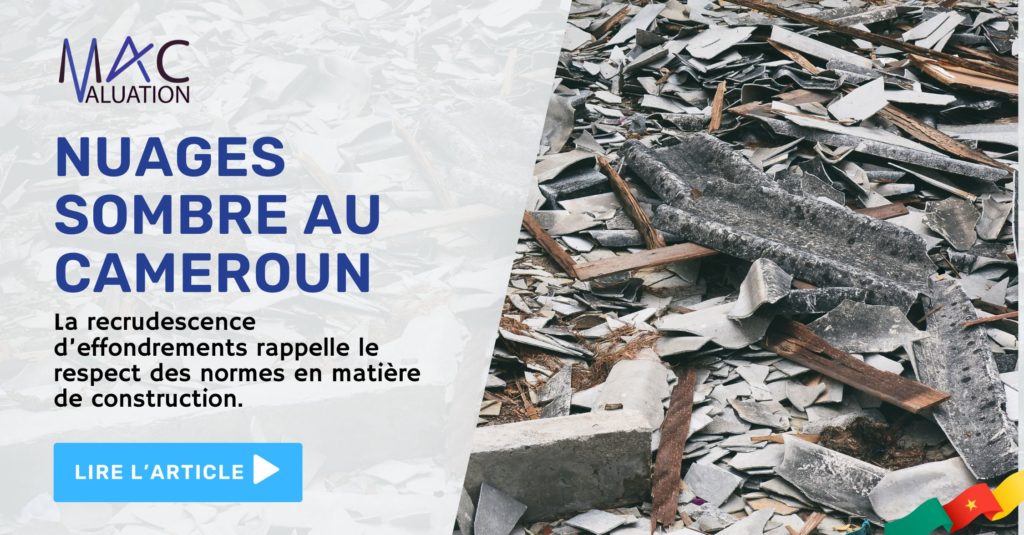
Case Studies of Successful Real Estate Projects in Central Africa
The real estate sector in Central Africa has experienced significant growth over the past decades, driven by rapid urbanization, population growth, and both national and international investments. This expansion has been accompanied by ambitious real estate projects that have shaped the urban landscape of the region and contributed to local economic development. Analyzing the success factors of real estate projects in Central Africa, considering the specific economic, political, social, and environmental contexts of the region, offers a unique opportunity to examine in detail the dynamics, challenges, and success factors specific to each project, thereby extracting valuable lessons and best practices for the future development of the sector.
This sector is shaped by a combination of economic, political, social, and environmental factors that influence the demand for housing, offices, and commercial infrastructures. The selection of case studies is based on specific criteria, including the recognition of projects for their success, their relevance in the regional context, and their representativeness of different countries in Central Africa such as the Democratic Republic of Congo, Rwanda, Cameroon, and Nigeria. The case studies cover a wide range of project types, including luxury residential complexes, modern shopping and office centers, as well as new towns. This diversity allows for the exploration of various aspects of the real estate sector, from housing needs to those of businesses.
Successful real estate projects in Central Africa are often the result of several key factors that contribute to their design, implementation, and positive impact on their environment. These factors can be grouped into several important categories: strategic vision and effective planning with risk management, adequate financing, strategic partnerships and effective collaborations, innovative design and environmental sustainability, and active engagement with local communities.
In the Democratic Republic of Congo (DRC), the Cité du Fleuve, an iconic project located in the capital Kinshasa with a population exceeding 15 million, represents an ambitious real estate enterprise that has transformed the urban landscape of the region. Launched in 2010 by a consortium of companies including the real estate development company « Fleuve Congo, » with an initial investment of over 1 billion dollars, this project covers an area of 200 hectares along the majestic Congo River, in partnership with national and international investors who enabled the mobilization of the necessary financing for the project’s realization. However, significant challenges were encountered, particularly regarding the management of basic infrastructures such as access to drinking water and electricity, as well as addressing issues related to land regulation and security. By offering quality housing, modern offices, and commercial facilities, this project has contributed to improving the living standards of residents and creating local jobs.
Kigali Heights is a real estate project located in the heart of Kigali, the capital of Rwanda, launched in 2014 by the Rwandan investment group « Ultimate Developers Ltd » in partnership with international investors. This project, representing an initial investment of over 300 million dollars, covers an area of 72,000 square meters, including offices, retail spaces, and leisure facilities. The realization of Kigali Heights comes in the context of sustained economic development in Rwanda, with an average annual growth rate of over 7% in recent years. The rapid growth of Kigali’s urban population, exceeding 1.5 million, has created a growing demand for modern offices and quality commercial infrastructures, to which Kigali Heights significantly responds. Among the key success factors of Kigali Heights are modern and functional architectural design, offering attractive work and commercial spaces for businesses and retailers. Additionally, the project benefited from a stable and investment-friendly economic environment in Rwanda, supported by business and investment-friendly policies. However, challenges were encountered, particularly regarding the management of construction costs and the increased competition in Kigali’s real estate market.
La Palmeraie, a major real estate project located in Douala, the largest city in Cameroon, was initiated in 2012 by the development company « Société Immobilière du Cameroun (SIC) » in partnership with local and international investors. With an initial investment estimated at over 150 million dollars, this project spans an area of 180 hectares, including luxury residences, commercial spaces, and leisure infrastructures. The realization of La Palmeraie comes in the context of sustained economic growth in Cameroon, with an average annual growth rate of nearly 4% in recent years. It includes a high-end residential design, integrating modern amenities and green spaces, thus attracting an affluent and demanding clientele. Additionally, the project benefited from the support of local authorities and a favorable regulatory environment for real estate investment in Cameroon. However, challenges were encountered, particularly concerning the management of construction timelines and the coordination of different actors involved in the project.
Centenary City, a major real estate project located in Abuja, the capital of Nigeria, was launched in 2014 by the Nigerian investment group « Centenary City Plc » in partnership with national and foreign investors. With an initial investment of over 1 billion dollars, this project covers an area of 1,000 hectares, including luxury residences, business centers, leisure spaces, and healthcare facilities. The realization of Centenary City comes in the context of rapid economic growth in Nigeria, with an average annual growth rate of over 6% in recent years. Among the key success factors of Centenary City are an ambitious urban development vision, integrating international standards in urban planning and design. Additionally, the project benefited from the support of the Nigerian government and tax incentives for investors, thereby facilitating the mobilization of necessary financing. However, challenges were encountered, particularly regarding the management of building permits and the resolution of land conflicts.
The four case studies present similarities in their ambition to develop large-scale real estate projects in dynamic cities in Africa. All projects aim to meet a growing demand for quality housing, offices, and commercial infrastructures. However, each project is distinguished by its geographical location, scale, initial investment, and architectural design. For example, while Cité du Fleuve and La Palmeraie focus on high-end residential projects, Kigali Heights integrates commercial and leisure spaces, and Centenary City aims to create a new city with a full range of services and infrastructures. Despite their differences, the case studies reveal several lessons learned and best practices that can be extrapolated for the future development of the real estate sector in Central Africa. Additionally, the involvement of local authorities and government support have been key success factors in several cases.
For real estate practitioners, the lessons learned highlight the importance of a clear strategic vision, inclusive urban planning, strong partnerships with investors, and innovative and sustainable design. Close collaboration with local authorities and adherence to existing regulations are also essential to ensure project success. For policymakers, the implications of the analysis emphasize the importance of creating a favorable regulatory and political environment for real estate investment, with appropriate tax incentives and support measures. They must also promote transparency, good governance, and administrative efficiency to facilitate the realization of real estate projects and attract the necessary investments. For investors, the case studies offer valuable insights to assess investment opportunities in the real estate sector in Central Africa. They must consider the success factors and potential risks associated with each project, paying particular attention to design quality, risk management, and community engagement. Diversifying investment portfolios and seeking strategic partnerships can also enhance the chances of success in a rapidly evolving market.
In conclusion, the analysis of the case studies of successful real estate projects in Central Africa offers valuable recommendations to guide future actions of practitioners, policymakers, and investors. By building on the lessons learned and adopting best practices, it is possible to further stimulate the development of the real estate sector in the region, thereby contributing to sustainable economic growth and improved quality of life for local populations. The figures reveal a positive trend in investments in large-scale real estate projects, with initial investments reaching up to 1 billion dollars, covering areas up to 1,000 hectares, and contributing to job creation and economic development in the regions concerned.
The Mac-Valuation Team
Mbanzoulou, J., & Nkiere, P. (2019). « Analysis of Success Factors of Real Estate Projects in Africa: Case of the Democratic Republic of Congo ». International Journal of Management and Economics, 5(1), 35-50.
Niyonzima, F., & Uwizeyimana, V. (2020). « Impact of Real Estate Projects on Sustainable Urban Development: Case of Kigali Heights in Rwanda ». African Journal of Management Research, 2(3), 78-92.
Kamdem, R., & Tchouassi, A. (2018). « Case Study: La Palmeraie, an Innovative Real Estate Initiative in Cameroon ». Economic Analysis Bulletin, 12(2), 105-120.
Ogunlana, O., & Adeyemi, K. (2017). « Risks and Mitigation Strategies in Real Estate Development Projects in Nigeria ». Journal of Construction Engineering and Management, 143(11), 04017071.
Banjo, A., & Suleiman, H. (2019). « Challenges and Opportunities of Real Estate Investment in Africa: A Review of the Nigerian Real Estate Market ». Journal of African Real Estate Research, 7(1), 26-40.
United Nations Human Settlements Programme (UN-Habitat). (2018). « Urbanization and Development in Africa: Challenges and Opportunities ». Nairobi, Kenya: UN-Habitat.
https://www.hsrcpress.ac.za/
https://unhabitat.org/












